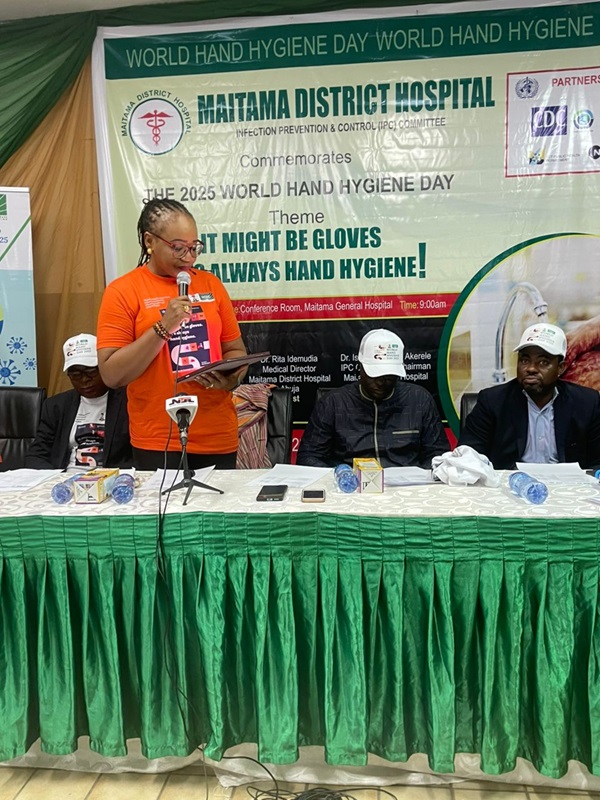
The Nigeria Centre for Disease Control and Prevention (NCDC) has declared that hand hygiene must go beyond being a mere clinical procedure, stressing that it is a moral obligation and public health imperative critical to ensuring safe healthcare in the country.
Speaking at an event marking the 2025 World Hand Hygiene Day at Maitama District Hospital, Abuja, the head of disease prevention and control at the NCDC, Dr. Tochi Okwor said hand hygiene must be integrated into the core culture of healthcare delivery across Nigeria.
Okwor emphasised that effective hand hygiene remains one of the most reliable strategies for preventing healthcare-associated infections (HAIs), reducing the spread of antimicrobial resistance (AMR) and ultimately saving lives.
“The theme of this year’s campaign, ‘It Might Be Gloves. It’s Always Hand Hygiene’, highlights a common but dangerous misconception: that wearing gloves alone is sufficient for infection prevention,” she said.
She noted that gloves, when improperly used or not supported by hand hygiene practices, could become sources of contamination rather than protection. “Glove stewardship, like antimicrobial stewardship, must be based on evidence, risk assessment, and responsible use,” she added.
Reflecting on Nigeria’s progress in Infection Prevention and Control (IPC), Okwor cited notable achievements such as the implementation of the “Turn Nigeria Orange” (TNO) movement, which aims to assess and strengthen IPC systems nationwide. She said this initiative had laid the foundation for institutionalising safe care practices in both public and private health facilities.
She also highlighted the establishment of the Orange Network—an initiative that designates select healthcare facilities as centres of excellence in IPC, antimicrobial stewardship (AMS), water, sanitation and hygiene (WASH) and diagnostics.
Other milestones include the launch of a national IPC policy and five-year strategic plan, the introduction of a federal IPC budget line, and the training of over 393 certified IPC professionals nationwide. In addition, a draft IPC legal framework and functional technical working groups at both national and state levels have been developed.
Real-time healthcare-associated infection surveillance systems have also been rolled out, enabling prompt detection and response to infections in facilities.
Despite these strides, Okwor stressed that achieving sustainable improvement requires more than policies. “The transformation comes when hand hygiene becomes a lived experience, a routine embraced by health workers, facility managers, patients, and communities. We must shift from checking boxes to building a culture of safety, supported by role modelling, data-driven feedback, and patient empowerment.”
She noted that Nigeria’s IPC roadmap aligns with the WHO’s Global IPC Strategy 2024–2030 and is pivotal in advancing broader national health goals, including Universal Health Coverage and the revitalisation of primary healthcare.
“Let every clean hand be a declaration that safety matters, that patients deserve better and that no one should be harmed while receiving care,” she said.
Also speaking, the medical director of Maitama District Hospital, Dr Rita Idemudia emphasised that proper hand hygiene could prevent up to 60 per cent of common diseases. She described handwashing as one of the most affordable and effective public health tools for infection control.
The event recognized hospitals like Maitama District Hospital for their leadership in translating national IPC policies into actionable practices and upholding patient safety standards.
World Hand Hygiene Day, observed globally on May 5, is an annual campaign led by the World Health Organisation (WHO) to raise awareness about the critical role of hand hygiene in infection prevention and quality healthcare.
The commemorative event concluded with a call to action urging all healthcare stakeholders to recommit to hand hygiene as a fundamental, life-saving practice that must never be neglected—whether gloves are worn or not.

